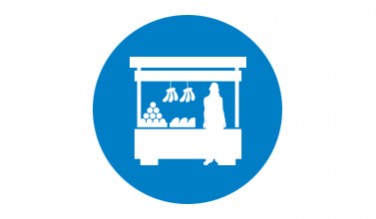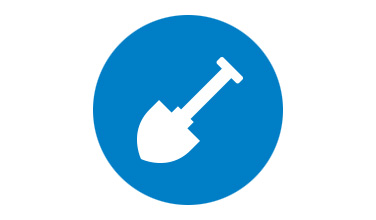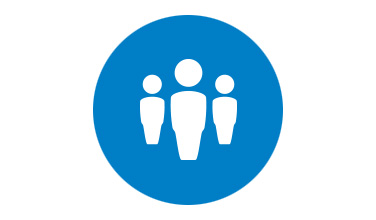Hand in Hand joins forces with Kiva to fight poverty in Kenya
For 10 years and running, Hand in Hand has harnessed the skills of millions of would-be entrepreneurs to fight poverty with jobs. Kiva, established in 2005, have been connecting entrepreneurs with lenders for almost as long. So when Hand in Hand Eastern Africa teamed up with the crowdfunding pioneers to connect rural Kenyans to life-changing microloans, it’s no wonder our entrepreneurs were up to the task.
Mercy, 38, is one of them. Along with the rest of her Ushirika Self-Help Group, the mother of two is seeking US $575 to purchase stock for her growing clothing shop. The group has raised US $100 so far – just a fraction of the US $73,475 our entrepreneurs have raised from 550 lenders since July.
To meet more Hand in Hand entrepreneurs and find how you can lend, visit our page on the Kiva website.
Visit our page on Kiva.org
Rising to the saving challenge
Akiba Nyumbani (‘home savings’) campaign closes in Kenya
For the third year running, Hand in Hand Eastern Africa ran the Akiba Nyumbani (‘home savings’) campaign to raise the awareness of the importance of saving amongst the poorest people in Kenyan society.
In Kenya just 42 percent of the population have a bank account with a formal financial institution (compared to 97 percent in the UK). However, Hand in Hand Eastern Africa is keen to demonstrate that even the most marginalised in society, excluded from formal financial institutions and living on just a few dollars a day can save a little money and that this can be the first step on the ladder out of poverty.
Organised into informal savings groups, all 2014 campaign entrants in Akiba Nyumbani were given a sealed ‘piggy bank’ and encouraged by Hand in Hand Eastern Africa trainers to save regularly. The best savers were rewarded in a high profile awards ceremony in Nairobi in September 2014.
The 2014 Akiba Nyumbani campaign saw entrants save an average KES 4,000 (US $45) in total over six months. This is a significant achievement for people living in communities where the majority (62 percent) support entire families on less than KES 5,000 per month (US $60), 50 percent must walk to the local well or river to get water and 84 percent use fire wood as source of cooking fuel.
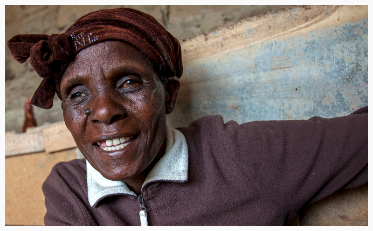
Philomena Nduku Mutuku | Shop Owner | Matuu, Kenya
Last year’s best saver, Philomena Nduku Mutuku was crowned champion yet again this year. The 68 year-old shop-owner, who used to earn just KES 500 (US $6) a week fetching water from the local well for her wealthier neighbors, said: “I did not go to school, but I am a fast learner: thanks to the Hand in Hand training, I can now control what I spend. So, I would estimate what I really needed every week and challenge myself to save the rest”.
Encouraged to save just a little each week, last year Philomena eventually had enough to invest in the necessary stock for a small shop – the only one in a 15km radius from her village. With demand in the shop outstripping her produce supply, this year the indefatigable Philomena hired three staff to work on her farm to increase supply.
As a direct result of saving, Philomena has moved on from carrying water to become an independent businesswoman who today earns some KES 1,000 (US $12) a day.
“Our Akiba Nyumbani campaign demonstrates the power of regular saving to Kenyans living in extreme poverty”
Pauline Ngari, CEO Hand in Hand Eastern Africa
The routine and discipline of regular saving is the first step of the Hand in Hand business creation model. The model was introduced into Kenya in 2010 to empower the country’s most vulnerable and disadvantaged – often women – to work their way out of poverty by running their own businesses.
Hand in Hand India’s Dr Sankar shares financial inclusion expertise

Dr Kalpana Sankar | CEO Hand In Hand India
The CEO of Hand in Hand India, Dr Kalpana Sankar, was invited to speak at the launch of Papua New Guinea’s Centre for Excellence in Financial Inclusion (CEFI) on 24 April. The event was inaugurated by the country’s Prime Minister, Peter O’Neill.
Dr Sankar drew on Hand in Hand India’s ten years’ experience in financial inclusion and microcredit in India and beyond.
In the Hand in Hand model for fighting poverty, entrepreneurial business training dovetails with financial inclusion. Over the past ten years, US $183m of business start-up loans have been extended to some of India’s most disadvantaged rural women, enabling them to set up and expand 915,000 businesses. This approach for job and business creation has now been successfully adapted in six other countries in Asia (Afghanistan) and sub-Saharan Africa (Kenya, Lesotho, South Africa, Swaziland, Zimbabwe).
CEFI is co-financed by the Asian Development Bank (ADB), the Australian Agency for International Development (AusAID) and the Government of of Papua New Guinea and will drive the national strategy for financial inclusion.
Read more about HiH India’s results in financial inclusion and microcredit on the Hand in Hand India website.
Launching Enterprise Incubation Fund
Social impact fund launched to directly benefit 100,000 Kenyan women micro-entrepreneurs
On July 10, business leader turned philanthropist Percy Barnevik launched an impact-first social investment fund from NGO Hand in Hand International at the Partners for Global Impact (PGI)® conference in Lugano.
Percy Barnevik and keynote speaker Sir Ronald Cohen (Chairman of Big Society Capital), together with conference partner INSEAD, challenged the 200 philanthropists, social entrepreneurs and development practitioners at the conference to find innovative solutions to some of the world’s most protracted social problems.
“As a businessman, I recognise good returns when I see them,” Percy Barnevik
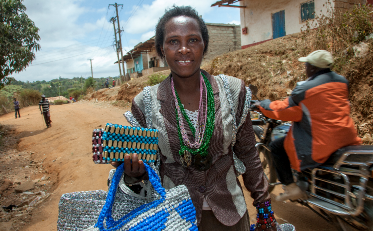
Benedetta Kalondu | Bag maker | Tala, Kenya
Leading by example, Percy Barnevik, founder and chairman of Hand in Hand International, launched the Enterprise Incubation Fund (EIF) for Kenya. The aim of the EIF is to enable Kenyans living at the bottom of the pyramid to access much-needed loans to start their own micro-businesses and work their way out of poverty. The presentation of the fund met with great interest amongst the delegates and there are already discussions underway regarding investments.
Hand in Hand is raising Kenyan Shilling (KES) 250 million (US $ 3m) in loan capital for the EIF. A US $100,000 equivalent investment in the fund supports the creation of 11,500 jobs, helping to lift over 57,000 adults and children out of poverty. The fund pays a fixed 2 percent annual interest in KES over five years.
The fund is targeting micro-entrepreneurs who typically live on less than US $15 a week and often fail to be reached by classic microfinance. Most of these are women. Each loan recipient will be given continuous business mentoring – ranging from financial literacy to basic marketing advice – by Hand in Hand Eastern Africa.

Percy Barnevik | Founder and Chairman of Hand In Hand
Blending microcredit and business mentoring has already proved to be a success outside of Kenya: Hand in Hand has helped to create 976,000 sustainable micro-businesses and more than 1.4 million jobs. The bulk of these results have been achieved by Hand in Hand India which, since 2006, has facilitated access to over US $189 million of credit for micro-entrepreneurs, with loan repayment rates of 99 percent.
Percy Barnevik said: “As a businessman, I recognise good returns when I see them. The EIF looks like one of the best philanthropic buys in international development available today. We only extend loans to those who have developed a viable plan for a micro-business with our support and this ensures very high repayment rates. Philanthropists investing in the EIF can be safe in the knowledge that their money is used productively to create long-lasting businesses and jobs.”
Saving is not a luxury
Hand in Hand Eastern Africa’s CEO, Pauline Ngari: Why saving is the first step on the ladder out of poverty
When World Savings Day was first launched in 1924 the aim was to encourage people to put their savings in a formal bank account rather than ‘under the mattress’ so that they could manage and save their money efficiently.
Today, as we celebrate the 79th World Savings Day, half the world’s population, some 2.5 billion adults, still do not have a bank account. Most of those people live in poor, rural areas in developing countries. For instance, here in my native Kenya, just 42 percent of the population has a bank account – compared to 97 percent in the UK.
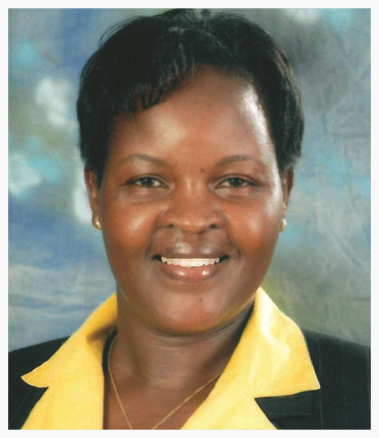
Pauline Ngari | CEO | Hand In Hand Eastern Africa
Why should this matter? If you are unbanked, it is that much harder to manage your money and that means you are not saving. In the absence of insurance and formal social safety mechanisms, savings are what see families through economic hardship. As they often cannot access formal credit, savings also provide the poor seed capital to start a business or the finance to expand one.
However, if you are poor, living at the margins of society and excluded from financial institutions, can you really save? Do you have any ‘spare’ money? And if you do, can you save enough to make a difference?
We often assume the answer is ‘No’, but I speak from personal experience when I say that the answer to these questions is emphatically ‘Yes’.
I was born into a poor farming family in central Kenya. After school I helped to manage the family household as my mother tried to run a village shop. When my mother’s shop failed, life became much harder for us all.
However, that failure is exactly why I set up Hand in Hand’s operations in Kenya in 2010. My mother had an entrepreneurial spirit but she lacked any form of business training. At Hand in Hand , we have developed a business creation model to enable people to start and run their own enterprise, increase their income and climb out of poverty.
And we know it works; globally, some 1.5 million people living in poverty in Asia and sub-Saharan Africa have – with our support – saved enough to set up and run over one million businesses.
First we create community groups, mainly women, who support each other, save together and learn together. Members learn to manage money – how to save as well as how to borrow and repay a loan. Here in Kenya – where the national saving rate is only half of the average for all low-income countries – we are running savings campaigns during which our members manage to save an average of 3,500 Kenyan Shillings over six months – a significant achievement when 62 percent of them support entire families on less than KES 5,000 per month (US $60).
Then we train the group members to discover and develop small businesses that make use of their skills and potential.
Next, if needed, we provide access to microloans and finance. Such is the success of our business creation model and the support across the group that 99 percent of these microloans are paid back.
Finally we help turn our members’ ideas into a larger commercial reality, take them to market and achieve sustainable growth, which in turn benefits their families and communities.
Take Philomena Nduku Mutuku, a 67-year-old shop-owner who used to earn just KES 500 (US $6) a week fetching water from the local well for her wealthier neighbours: “I did not go to school, but I am a fast learner: thanks to the Hand in Hand training, I can now control what I spend. So, I would estimate what I really needed every week and challenge myself to save the rest”.
Encouraged to save just a little each week, Philomena eventually had enough to invest in the necessary stock for a small shop – the only one in a 15km radius from her village.
As a direct result of saving, Philomena has moved on from carrying water to become an independent businesswoman who today earns some KES 1,000 (US $12) a day.
And that is the power of saving.
Originally published on Pauline Ngari’s Huffington Post blog
Hand in Hand Afghanistan expanding with grant from EU
Now is a crucial time for Afghanistan.
Already, the country is in the process of electing its first new president after 12 years under Hamid Karzai. By the end of the year, with the whole world watching, that president will oversee the withdrawal of the International Security Assistance Force, inheriting main responsibility for the country’s security for the first time in just as long.
Despite uncertainty over Afghanistan’s future – or indeed because of it – Hand in Hand is committed to remaining in the country. In fact, we’re expanding our reach thanks to a game-changing US $1.16 million (€840 K) grant from the European Union. Launched in February 2014, the deal marks a series of milestones for Hand in Hand:
- Our first grant from the European Union.
- Our first time working in Samangan Province, bordering Hand in Hand Afghanistan’s most developed operation in the province of Balkh. Samangan offers relatively stable security, support from local stakeholders and, given the absence of similar programmes in the region, the opportunity to make a transformative impact.
We’re also introducing a number of upgrades adapted to suit Afghan conditions:
- Literacy and numeracy training.
- Vocational training and toolkits for in-demand skills such as beekeeping, silkworm rearing and motorcycle repair. Farming productivity in Afghanistan has fallen by half during 30 years of near-continuous war.
- Shari’a-friendly microfinance. Profitable lending is prohibited by Islamic law, causing most microfinance institutions to avoid Afghanistan. To help plug the gap we’re bringing our successful Enterprise Incubation Fund to the country.

